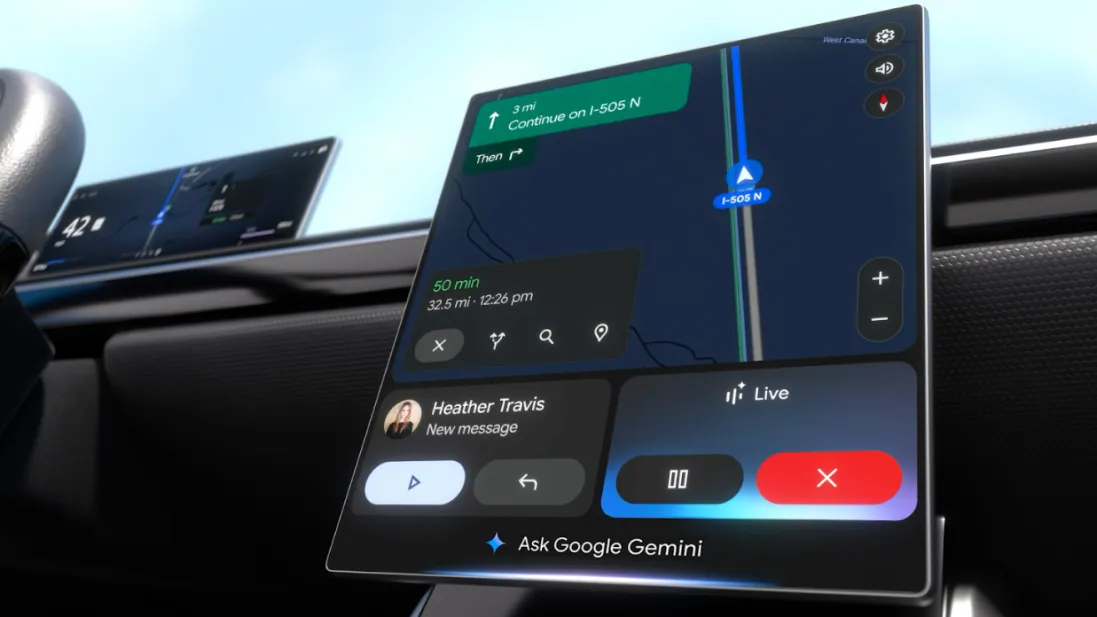
Google is taking a major leap forward in connected car tech by integrating its Gemini generative AI into all vehicles that support Android Auto, with a broader rollout to cars running Google Built-In planned later this year.
Announced during the company’s Android Show, just ahead of the 2025 Google I/O developer conference, Gemini promises to radically improve how drivers interact with their vehicle’s digital assistant — not only making driving more productive, but also more conversational and intuitive.
Gemini: A Smarter, Conversational Copilot for the Road
According to Patrick Brady, Google’s VP of Android for Cars, this is “one of the biggest shifts” the in-car experience has seen in years.
Gemini will show up in two primary ways:
Enhanced Voice Assistant
Gemini will replace Google Assistant with a much more capable and natural conversational AI. It’ll handle common tasks like sending messages, playing music, and adjusting navigation — but without requiring rigid, keyword-driven commands. Instead, users can speak in a more casual, human-like way.The AI can even remember preferences — such as a friend who prefers texts in Spanish — and automatically translate your message before sending. It’ll also be smart enough to suggest highly specific pit stops like “vegan-friendly taco spots” along your route, pulling from Google’s vast review and location data.
“Gemini Live” Mode
This is where things get even more futuristic. Gemini Live creates an environment where the assistant is always passively listening and ready to engage in full-on conversations — from brainstorming family dinner ideas to sharing facts about Roman history. Essentially, your car becomes a rolling chatroom powered by AI.
Is It a Distraction or a Smarter Interface?
While some critics may raise concerns about attention and distraction, Google argues that Gemini actually reduces mental effort by allowing more fluid and intuitive interactions, helping drivers complete tasks faster and with less confusion.
This rollout comes as many automakers shift back toward physical knobs and buttons in response to safety concerns about touchscreens. Google, however, is betting that smarter AI — not simpler hardware — is the better solution to driver distraction.
Under the Hood: Cloud Now, Edge Later
At launch, Gemini in Android Auto and Google Built-In vehicles will rely on cloud-based processing. But Google is already collaborating with automakers to move some AI processing to the vehicle itself (on-device edge compute) — which would improve speed, reliability, and reduce dependence on network connections, especially during long drives or in rural areas.
Will Gemini Use Car Cameras and Sensors?
Modern cars are loaded with sensors and, increasingly, interior and exterior cameras. While Brady confirmed that Google is exploring ways to leverage this multi-modal data, there are no announcements yet about Gemini integrating with that information — though it’s clearly on the roadmap.
“There are some really compelling opportunities once you have more cameras in the car,” Brady hinted.
Global Availability and Language Support
Gemini will roll out to all countries where Google’s generative AI is already available, and it will support over 40 languages, making it a truly global upgrade to Android Auto and Google Built-In vehicles.

